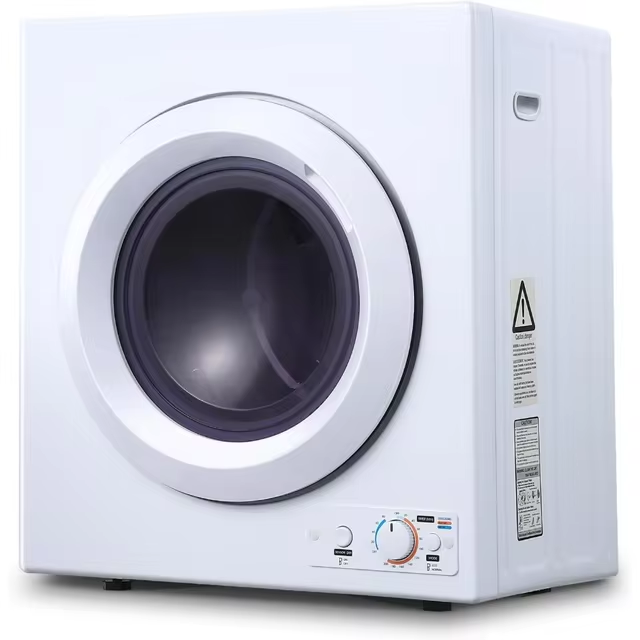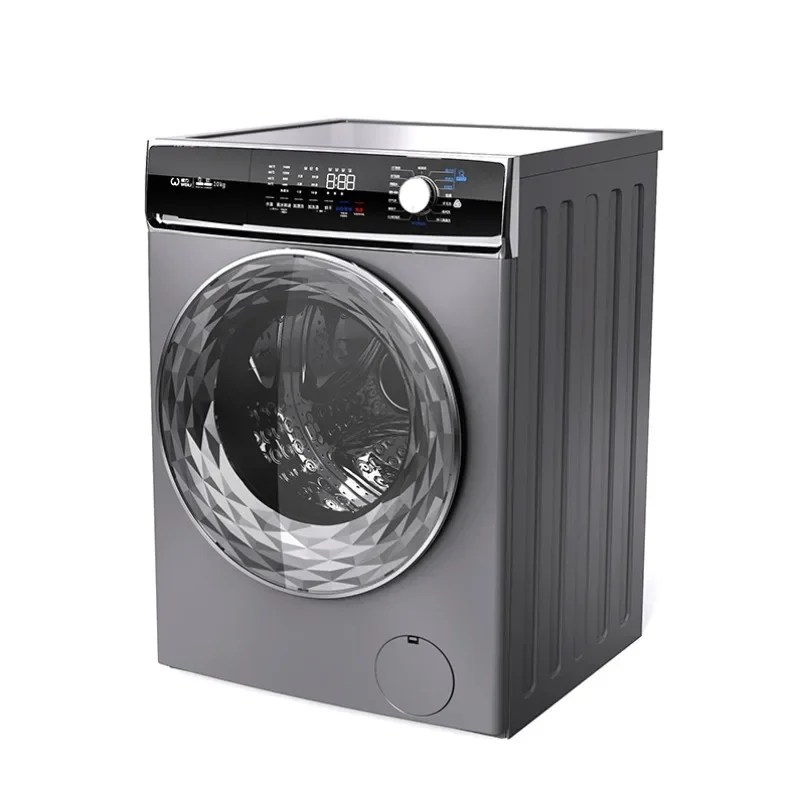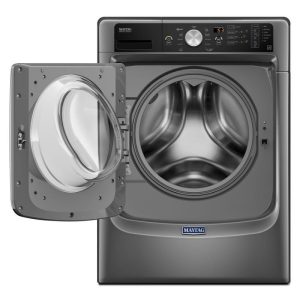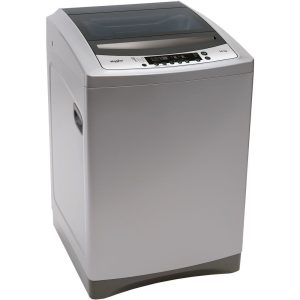Silencing Your Washer: Stop the Grinding Noise
Causes of Washing Machine Making Grinding Noise
Washing machine making grinding noise can be alarming and indicate a problem. Let’s discuss common causes.
Worn or Frayed Drive Belt
Drive belts can stretch or fray over time, causing grinding noises. A loose or damaged belt needs replacement.
Worn Drum Bearings
Bearings ensure the drum rotates smoothly. Worn bearings can make a rumbling sound and need replacing.
Damaged Drive Pulley
The drive pulley helps spin the drum. If damaged, it can make grinding noises and may need replacing.
Damaged Motor Coupling
This connects the motor to the transmission. If broken, it can cause a grinding sound and needs fixing.
Blocked Drain Pump
A blockage in the drain pump can struggle to remove water, causing grinding sounds. Clearing blockages can fix this issue.
Step-by-Step Solutions for a Quieter Washer
Replacing a Faulty Drive Belt
If your washer is making a grinding noise, check the drive belt. A stretched or frayed belt can cause this sound. To replace it:
- Unplug your washer.
- Open the back panel using your user manual as a guide.
- Examine the belt for damage.
- Find the right belt for your washer model.
- Remove the old belt, noting the setup.
- Install the new belt.
- Close the panel, plug in the washer, and run a test cycle.
Repairing or Replacing Drum Bearings
Grinding can also mean drum bearings are worn. For repair or replacement:
- Disconnect power from your washer.
- Remove the back to expose the drum and bearings.
- Inspect the bearings for damage.
- Get the correct bearings for your model.
- Remove the old bearings, lubricate, and install the new ones.
- Reassemble your washer and test for noises.
Fixing a Damaged Drive Pulley
A faulty pulley might be why your washer is loud. To fix:
- Shut off and unplug the washer.
- Access the drum, belt, and pulley from the back.
- Tighten any loose pulley parts.
- Replace damaged pulley components as needed.
- Reassemble, restore power, and run a test wash.
Replacing a Broken Motor Coupling
A grinding noise can suggest a motor coupling issue. To replace it:
- Unplug the washer.
- Find and expose the motor coupling per your manual.
- Check for signs of wear or damage.
- Source a compatible replacement part.
- Swap out the old coupling for the new one.
- Replace the panel, plug in, and test the washer.
Clearing a Blocked Drain Pump
A blocked pump can cause grinding noises during the drain cycle. To clear it:
- Cut power to your washer.
- Locate the pump at the bottom front.
- Check for blockages and clear any debris.
- Reassemble the washer and test it by running a cycle.
Prevention Tips to Avoid Future Grinding Noises
To keep your washing machine running smoothly and prevent future grinding noises, consider these proactive steps.
Routine Maintenance
Regularly check and clean your washer. Look for loose coins or buttons that might cause noise. Inspect the drive belt and drum bearings periodically for wear and tear. If you notice any damage, replace parts early to avoid worse issues.
Proper Usage Practices
Avoid overloading your washer. It can strain the motor and other components. Always use the recommended type and amount of detergent. Too much soap can lead to buildup and affect the machine’s performance.
Early Detection of Washer Issues
Listen for unusual sounds when the washer is running. If you hear any, don’t ignore them. Address strange noises quickly to prevent major damage. Stay alert to changes in washing machine performance. This can often signal the start of potential problems.
Troubleshooting Other Common Washer Sounds
Apart from grinding noises, washers may emit other concerning sounds like banging and rattling. Let’s explore their causes and fixes.
Identifying and Addressing Banging and Clunking Noises
Banging and clunking could suggest loose parts or objects inside the drum. Here’s how to address this:
- Turn off the washer.
- Inspect the drum for any loose items like coins or metal objects.
- Check the drum paddles and fasten them if necessary.
- Ensure the washer is level on the ground; adjust feet if needed.
- Run a cycle to check if the noise persists.
Investigating Rattling and Shaking During Spin Cycle
Rattling and excessive shaking may indicate an unbalanced load or an issue with the suspension system. Follow these steps to investigate:
- Stop your washer.
- Redistribute your laundry evenly in the drum.
- Check the suspension rods or springs for wear.
- Replace any worn out suspension components.
- Perform a test spin to ensure the issue is resolved.
Consistent maintenance and attention to unusual noises can help avoid these common washer sound problems.
When to Call a Professional for Washer Repair
Knowing when to call a professional is crucial for your washing machine’s health. If the grinding noise persists even after you’ve tried all the DIY solutions, it may be time to seek expert help. Here’s how to evaluate whether you need professional repair services.
Evaluating the Severity of the Problem
First, assess the situation carefully. If the grinding noise is loud and persistent, it could mean a more serious issue. Watch out for these signs:
- Noises continue after replacing parts.
- Drum movement seems unstable or erratic.
- Error codes appear on your washer’s display.
- Water leaks persist during cycles.
- Washer stops mid-cycle or won’t start at all.
These symptoms suggest a deeper mechanical problem. They often require skills and tools that only professionals possess. Don’t hesitate to call a technician in such cases.
Understanding the Limits of DIY Repairs
DIY repairs can save money but they have limits. Recognize when a task is beyond your skill set. Complicated issues, like electrical faults or integrated washer-dryer problems, are usually best left to professionals. Another important factor is warranty concerns. Attempting repairs yourself can void your warranty, leading to more costs in the long run. So, if your washing machine is still under warranty, or if the repair seems complex, contacting a certified repair service is the safest option.
Remember, addressing grinding noises early with a professional can prevent further damage. It often ensures that your washing machine keeps running smoothly for years to come.
 Ensuring Washer Efficiency and Longevity After Repairs
Ensuring Washer Efficiency and Longevity After Repairs
After fixing grinding noises in your washer, ensure it stays efficient and lasts long.
Conducting a Test Cycle Post-Repair
Once you’ve repaired your washer, running a test cycle is crucial. It confirms the repair success and checks for new issues. Follow these steps:
- Plug in and turn on your washer.
- Select a short wash cycle.
- Let the washer complete the cycle without interruptions.
- Listen for unusual sounds.
- Check for error messages.
- Ensure the drum and cycles work without problems.
If issues arise, review the steps taken or consult a professional.
Maintaining Your Washer Post-Service
Regular maintenance keeps your washer in top shape. Here’s what to do:
- Check and clean the filter monthly.
- Wipe down the drum and gaskets.
- Leave the door ajar to air out after use.
- Use the correct amount of detergent.
- Don’t overload the washer.
- Inspect hoses and connections annually.
- Schedule professional inspections.
Taking care of your washer prevents future noises and extends its lifespan.
Conclusion: washing machine making grinding noise
A washing machine making grinding noise is often a signal that something needs your attention. By understanding the potential causes, diagnosing the issue, and knowing how to fix common problems, you can save money and prolong the life of your appliance. Regular maintenance, careful usage, and timely repairs can help prevent future problems, allowing you to enjoy stress-free laundry days.



